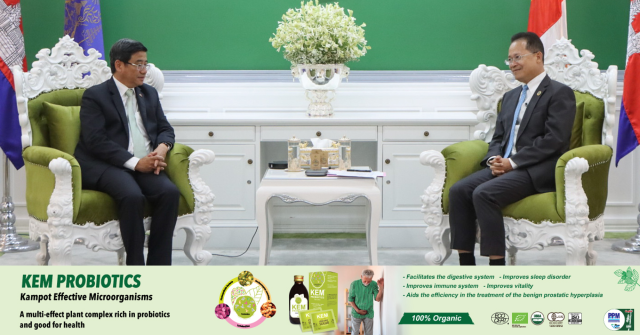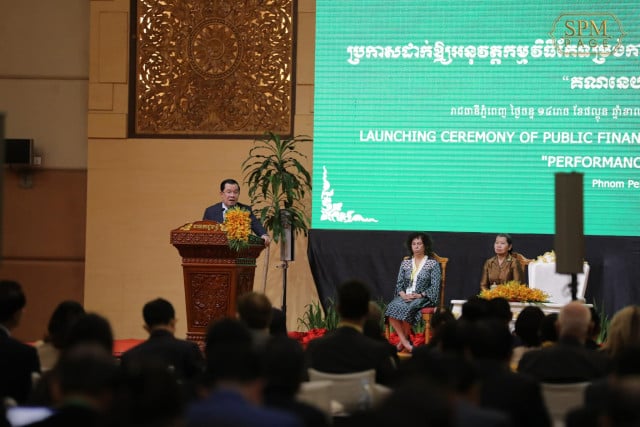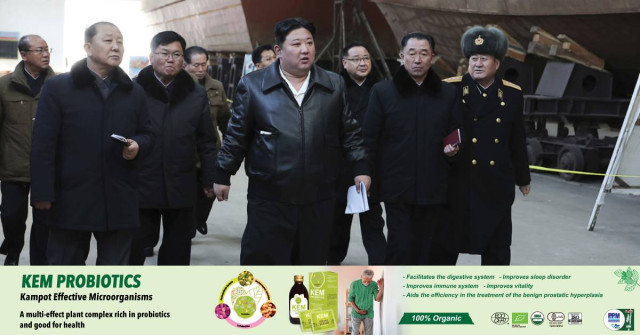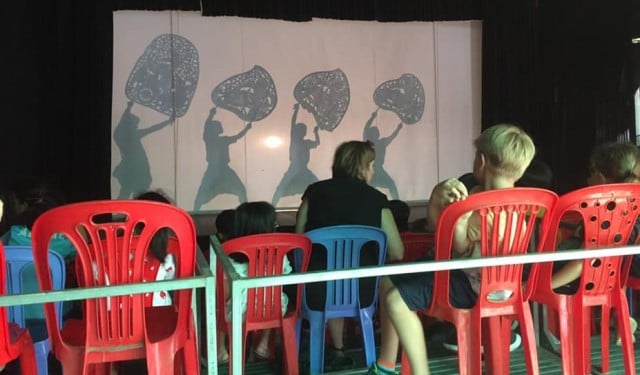Cambodia and Thailand Commit to Tackle Transboundary Smog and Pollution

- By Torn Chanritheara
- February 3, 2024 4:00 PM
PHNOM PENH – Cambodia is ready to tackle all pollution—air, land or water—beyond borders as the environment has no border, Minister of Environment Eang Sophalleth told Thai Deputy Foreign Minister Jakkapong Sangmanee on Feb. 2.
During a phone meeting with Jakkapong, he pointed out that the environment is not as limited as the borders of each country, requiring the need to work together to prevent such pollution issues.
Jakkapong, who had initiated the meeting, sought Cambodia’s cooperation to address transboundary air pollution, including setting up a hotline, in order to ensure the well-being of the people of the two countries, the Ministry of Environment said in a press release on its official Facebook page.
Speaking of the haze problem that occurs every year and has affected the health of the people on both sides of the border, Jakkapong said that Thailand needs the contribution of Cambodia to respond to regional issues through bilateral cooperation by establishing a working group, using technical equipment to monitor and solve this problem, and setting up a hot-line system between Thailand and Cambodia for that purpose, according to the ministry.
During the phone meeting, Sophalleth said that Cambodia monitors air quality through automation equipment and monitoring stations in Phnom Penh and other provinces.
This has shown the air quality index being at a good level, with only minor variations, the PM2.5 levels being on average between 9.21 µg/m3 and 32.68 µg/m3, which is right below the safety standard of 50 µg / m3, Sophalleth said. “The level of air quality index in Cambodia in the past did not pose a risk to the health of the Cambodian people,” he said.
Regarding Jakkapong’s appeal for cooperation, Sophalleth said that such environmental issues don’t stop at the borders of each country, and that addressing them requires the two countries working together to do so.
Sophalleth said that Cambodia was ready to respond to pollution on land, in the air and in the water. As he explained, the Blue Sky campaign, which is similar to Thailand’s Clear Sky, was launched 100 days ago to promote climate action and for carbon neutrality by 2050. The Cambodian government’s Circular Strategy on Environment (2023-2028) focuses on three goals: cleanliness, greenery and sustainability.
According to the Ministry of Environment’s release, the two countries are committed to jointly prevent pollution in the environment, to ensure public health, to prevent haze, pollution and plastic waste in the environment, and to promote good relations among countries in the ASEAN region.
Following the phone meeting between the two government officials, Sophalleth received a courtesy call from Thai Ambassador Cherdkiat Atthakor to further discuss the issue.















